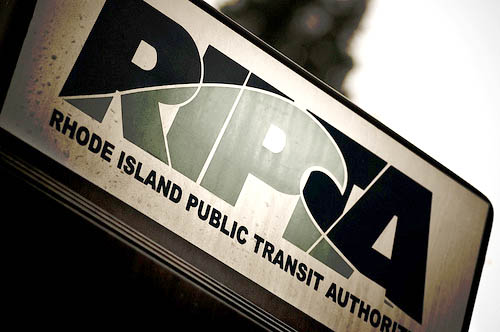In these economic times, everyone depends on help from somewhere and Rhode Island’s non-profit agencies probably more so than anyone. That’s where our friends at the Rhode Island Foundation play such a major role. For those of you unfamiliar with RIF, they are the pre-eminent leader in community philanthropy in the state and provide guidance, management and leadership in everything non-profit in Rhode Island. Below is their latest press release and from it you’ll be able to see just how many people and organizations they assist. Thanks again RIF, many of the state’s individuals and providers would be lost without your support.
Rhode Island Foundation Announces $3.4M in Q2 Discretionary Grants
Total of $12.5M in grants awarded to date in 2011
Providence, RI – The Rhode Island Foundation announced today that $3,394,856 in grants were awarded to local nonprofit agencies during the second quarter of 2011 through its discretionary grant programs. The Foundation’s president and CEO, Neil D. Steinberg, said the organization has granted a total of $4,627,108 in discretionary grants this year, and a total of $12.5 million so far in 2011 from all funds.
“Many outstanding organizations are addressing some of our state’s most pressing challenges and the Foundation is proud to partner with them. Whether providing children and their parents with educational opportunities throughout the summer to reinforce skills, or funding a health care job training program with a 100% placement rate for its participants, our grants support programs with tangible benefits not only for their participants, but also for all Rhode Islanders in the long term, as we become a more educated, highly-skilled, healthier, and engaged community,” said Steinberg. The Foundation’s discretionary grant programs focus on six key sectors: arts and culture, community and economic development, education, environment, health, and human services. For each sector, the Foundation has developed a focus area to award grant investments for maximum impact – creating opportunities for more productive evaluation, convening of grantees, and other types of assistance. The Foundation aims to support projects and organizations that strive for long-term solutions to critical community issues. Applicants are encouraged to seek grants for collaborative projects that serve underserved Rhode Islanders, foster innovation and seek to achieve efficiencies, reduce duplication, and provide strategies for long-term sustainability.
The Foundation is focusing additional resources, advocacy, and leadership on public education and primary health care. These were identified as areas critical to the future of our state and align directly with the Foundation’s mission to “meet the needs of the people of Rhode Island.”
A sampling of the Foundation’s Q2 grants:
Family Service of Rhode Island
$40,000
This grant supports the expansion of the work of the Justice Enforcement Social Worker to East Providence. The Justice Enforcement Social Worker partners with local police to provide rapid response to children, families, elders and other individuals during situations involving violence and/or crime, to reduce similar future incidents, and to heal wounds inflicted by chronic exposure to violence.
Americans for the Arts – Local Arts Index
$15,099
This grant will support data analysis as part of Americans for the Arts: Local Arts Index – a national effort to tell the story of arts vitality on the community level. In an effort to pull maximum value from the data and with funding from Kresge Foundation, Americans for the Arts is working with 100 partners, including the City of Providence, over two years to develop the Local Arts Index. This grant supports the expansion of the work currently underway with the City of Providence to the rest of the state.
Paul Cuffee High School Growth Initiatives
$25,000
The Paul Cuffee School, as a part of its summer activities, will engage other public schools in an education partnership initiative. The initiative is based on establishing a culture of collaboration within and between schools, sharing best practices, and establishing relationships among teachers from different schools and districts.
Fogarty Elementary School Summer Enrichment Program
$7,000
The Mary E. Fogarty Elementary School initiated a program aimed at improving student achievement this summer. It is a collaborative effort coordinated by the Providence Children’s Initiative, modeled after the Harlem Children’s Zone. One hundred and fifty students in grades one through five have been invited to participate in four hours of classes Monday through Wednesday, including breakfast and lunch. Organizers will engage parents through special parent classes. This is the first such total collaborative effort of its kind in Providence.
Rhode Island Coalition for the Homeless
$83,906
This grant is for the Food Access Project for homeless, elderly and disabled Rhode Islanders.
The program aims to decrease hunger and food insecurity among homeless, elderly and disabled individuals by increasing access to prepared meals through the utilization of SNAP benefits in authorized restaurants.
RI Philharmonic
$60,000
As the state’s only professional orchestra, the only certified community music school, and the second largest arts organization in Rhode Island, the Rhode Island Philharmonic and Music School is a leader in the arts community. Of particular note, the Philharmonic has a strong partnership with the Pawtucket Public Schools helping students meet arts graduation requirements at the Jacqueline Walsh School and providing instruction at Jenks Junior High.
The Poverty Institute
$75,000
This grant will support the Poverty Institute’s work to improve the economic vitality of Rhode Island and its residents through public education, work with state agencies toward system reform, and legislative advocacy. The Institute’s role in tracking and analyzing policy and budget decisions informs statewide decision-making and makes data available to the broader nonprofit sector that provides programs to improve the financial stability of low and modest-income Rhode Islanders.
City Year Rhode Island
$73,295
This is the second of a proposed three years of funding to City Year for the work of corps members in Providence public middle schools. During the past school year, City Year delivered targeted interventions to 1,400 struggling students and served more than 2,700 students through whole school supports. City Year has obtained access to student data after developing and signing a data sharing agreement with the district. Preliminary data shows student improvement in achievement, attendance and behavior, all necessary ingredients to student success.
RI Community Food Bank
$5,000
This grant provided support to the Food Bank as part of Rhode Island Public Radio (WRNI’s) summer pledge campaign running in the last week in June. During Friday and Saturday of that week, the radio station offered that for every dollar pledged to the station, a dollar would be contributed to the Food Bank to assist in meeting the needs of at-risk families during the summer months.
Farm Fresh Rhode Island
$25,500
This grant represents $10,500 from discretionary funds and $15,000 in co-funding from the Foundation’s George M. and Barbara H. Sage Fund in support of Farm Fresh Rhode Island’s Harvest Kitchen apprenticeship project. The Harvest Kitchen is a work experience and job-training program for adjudicated youth that supports Rhode Island’s local food system by creating high-quality products from locally grown fruit and vegetables. The project is a partnership between Farm Fresh Rhode Island and the Department of Children, Youth and Families. In addition to training youth in culinary skills, the Harvest Kitchen places youth in service opportunities at meal sites and in internships related to their training.
Rhode Island Hospital – Enhancing Mental Health Care in the Primary Care Setting
$35,000
Grant funds are requested to create a curriculum to teach basic mental health care interventions to primary care physicians. For the past five years, Rhode Island Hospital’s Dr. Elizabeth Toll and others have been learning to integrate mental health care with primary care. Over the past year, working with two psychiatrist colleagues, she has developed a curriculum to teach clinic doctors and nurses to do this kind of work.
Riverwood Mental Health Services – Housing First Rhode Island
$100,000
Housing First Rhode Island (HFRI) is Riverwood’s ground-breaking new effort designed to end chronic homelessness in our state. The chronically homeless, those who are homeless for extensive periods, sometimes years, have complex needs that service delivery systems have been unsuccessful in meeting. The Housing First model has been field-tested in our state and other communities and has produced consistent results. With Foundation support, Housing First will be able to serve an additional 240 clients, and using conservative estimates, save Rhode Island taxpayers over $2 million in service costs annually.
Boys & Girls Clubs of Warwick
$9,600
The seven Boys & Girls Clubs in Rhode Island have been meeting over the past year to explore various options for achieving cost savings through collaborative structures. The groups will work with consultants to decide on a collaborative structure and take the first steps to move forward. The national office of the Boys & Girls Clubs will contribute $10,000 to this project.
College Crusade of Rhode Island
$55,000
The College Crusade continues to show positive results as the state’s most comprehensive college readiness program, serving 17% of all middle and high school students in Providence, Pawtucket, Woonsocket, and Central Falls. Grounded in the youth development field’s best practices and relying upon a proven advisory system that develops deep personal connection with the Crusaders, the Crusade provides academic enrichment, career exploration, social/personal development and college preparation programs to approximately 3,500 middle and high school students. In addition, since 2001 the Crusade has awarded more than $22 million in scholarship aid to nearly 2,800 underserved students.
Jonnycake Center of Peace Dale
$5,000
The mission of the Jonnycake Center of Peace Dale is to improve the quality of life for individuals and families by providing comprehensive assistance to those in need of food, clothing, and household items and through individual and systemic advocacy for their clients. With grant funds, the agency will purchase food for their emergency food pantry.
Tech ACCESS of RI
$5,000
TechACCESS’s mission is to promote and support the independence and achievement of people with disabilities through the use of technology. This grant supports the TechACCESS Communication Device Loan Library. Through this program, adults who have lost their speech are able to borrow a device and receive the professional assistance they need to continue communicating with loved ones throughout the length of their illness.
Vietnam Era Veterans Association: Homeless Diversion Program
$4,000
The Vietnam Era Veterans Association of Rhode Island provides improved opportunities for all Rhode Island veterans, who served honorably, and their families. With grant funds, the agency will support the veterans’ needs for emergency shelter, assistance with security deposits, and pre-paid food cards to assure that qualified veterans have a safe living environment and access to food.
For more information about the Foundation, visit our website at www.rifoundation.org.
About The Rhode Island Foundation
Founded in 1916, the Rhode Island Foundation is one of the oldest and largest community foundations in the United States. Community foundations are composed of permanent funds established by many donors for the long-term benefit of the residents of a defined geographical area; the Rhode Island Foundation is one of the few to serve an entire state.
 It was twenty years ago this week that Tim Berners-Lee, while working at CERN, put the world’s first website online. It announced his new creation: the World Wide Web. Last year while urging Internet users to sign Demand Progress’s petition against the Internet Blacklist Bill, Berners-Lee wrote this about the principles that underpin his project:
It was twenty years ago this week that Tim Berners-Lee, while working at CERN, put the world’s first website online. It announced his new creation: the World Wide Web. Last year while urging Internet users to sign Demand Progress’s petition against the Internet Blacklist Bill, Berners-Lee wrote this about the principles that underpin his project:



